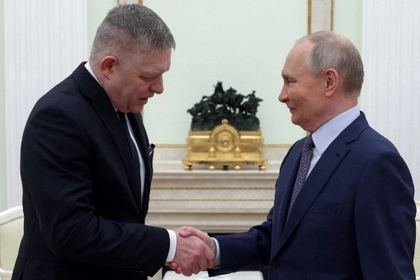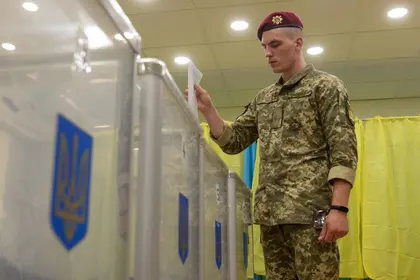Will there or won’t there be presidential and parliamentary elections in Ukraine in 2024? It’s a burning question and a hot topic in political circles.
In normal peacetime conditions, the Ukrainian people would have elected a new parliament in October 2023, and a president would be elected in March 2024.
JOIN US ON TELEGRAM
Follow our coverage of the war on the @Kyivpost_official.
But despite both the government and the opposition claiming that elections cannot be held during wartime, the issue is not going away.
Pressure from Western allies
In May, the President of the Parliamentary Assembly of the Council of Europe, Tiny Kox, said that Ukraine should hold elections despite martial law.
“It is up to you to solve this challenge,” he said. “It is not our question to indicate how to do it, but of course, Ukraine should organize free and fair elections. Because this is your obligation according to the statute of the Council of Europe.”
Cox emphasized that there will be no complaints against the authorities "if the elections are not perfect,” but added: “If you don't hold elections, everyone will have questions for you… Democracy is impossible without elections.”
In late August, US Republican Senator Lindsey Graham visited Ukraine. He came not only to express support for Ukrainians in their fight against Russian aggression, but also to make a statement: elections must be held.
“We will continue to fight to keep the weapons coming so you can win a war we cannot afford to lose. But you also have to do two things at the same time. Elections should be held in Ukraine next year,” he said on the eve of Ukraine's Independence Day.

Zelensky Accuses Slovak PM of Wanting to ‘Help Putin’
He continued: “I want this country to have free and fair elections, even when it's under attack. The American people should know that Ukraine has changed. It was a very corrupt country in the past. ... I believe that it is time for Ukraine to take the next step in the development of democracy, namely, to hold elections in 2024.”
After his statement, rumors abounded that the US was forcing the Ukrainian government to hold elections during a very difficult time of war.
A few days later, President Volodymyr Zelensky said in an interview that he does not mind holding the vote next year: “I don't want the authorities to have the attitude that they are holding on [to positions]. I'm not holding on to anything.”
But he set certain conditions for international partners. Firstly, the allocation of financial aid in the amount of Hr. 5 billion ($138m); and secondly, joint risk-taking, namely that “international observers must be in the trenches” and “they will need to be sent to the front lines.”
At the time, the US and the EU had not announced whether they were ready to meet these conditions. But since World War II, no country has experienced a war on such a scale as Ukraine.
Practical challenges
A key challenge for elections under current conditions is how to ensure that all Ukrainians have the ability to vote – including military personnel in the trenches, refugees abroad and people in territories occupied by Russia since Feb. 24, 2022.
“There are many difficulties,” Zelensky expressed.
“In 2024, if the war continues and if elections are held, I will never in my life leave my country. Because I am the guarantor of the Constitution and I will defend it in any case,” he told the Portuguese media.
If the elections are held in peacetime, he has pledged not to run for a second term.
Currently, Zelensky has a high trust rating – at around 70-75 percent. Therefore, he has every chance of being re-elected. Meanwhile, evidence suggests that the Ukrainian people do not support holding elections until the end of the war.
A sociological survey by the Kyiv International Institute of Sociology (KIIS) revealed that 81 percent of respondents are against elections taking place now.
There is also the added complication that current legislation prohibits the holding of elections during martial law.
However, the Minister of Foreign Affairs announced that Zelensky is considering the possibility of holding presidential elections next spring: “We are not closing this page. The President of Ukraine is considering and weighing various pros and cons,” Dmytro Kuleba said, caveating that holding elections during the war with Russia will lead to “unprecedented” challenges.
As a Kyiv Post source in the president's entourage explained, the minister's statement was aimed specifically at the West, which is pushing Ukraine towards an election process: “Kuleba did not mean that we are preparing… we are analyzing the existing problems,” the source said.
But People's Deputy Oleksiy Goncharenko, a representative of the European Solidarity opposition party, claims that Zelensky approved the decision to hold presidential elections on March 31, 2024.
"They are going to explain such a decision to society by the fact that it seems to be a requirement of Western partners. In particular, the fact that if these elections are not held, then Zelensky loses legitimacy – especially against the background of the fact that [Russian President Vladimir] Putin plans to hold elections in March,” the deputy claims.
Zelensky denied Goncharenko's position, saying: "We all understand that now is a time of war, when there are many challenges, and it is absolutely irresponsible to so lightly and playfully throw the issue of elections into society.”
However, there is also the issue that Putin is likely to be re-elected in 2024 in Russia, therefore should Zelensky not be given a fresh mandate through democratically held elections, this could work against the Ukrainian leader.
The president's entourage does not yet have a solution to this issue: “We still have to live until next year,” a lawmaker said in conversation with Kyiv Post.
Next steps are not easy to predict. But the state budget for 2024 as it stands does not provide for the financing of any elections.
UPDATE: Zelensky said Monday he doesn't believe it is the right time for elections.
"We must decide that now is the time of defence, the time of battle, on which the fate of the state and people depends," Zelensky said in his daily address.
He said it was a time for the country to be united, not divided, adding: "I believe that now is not the (right) time for elections."
You can also highlight the text and press Ctrl + Enter






